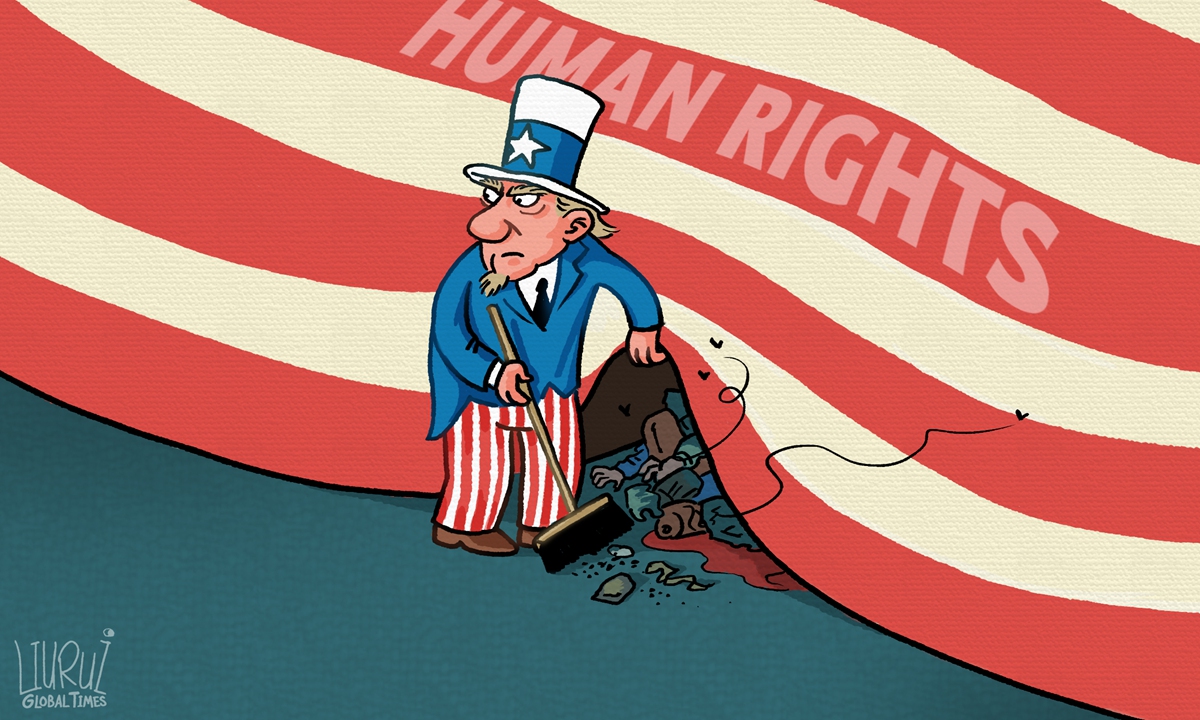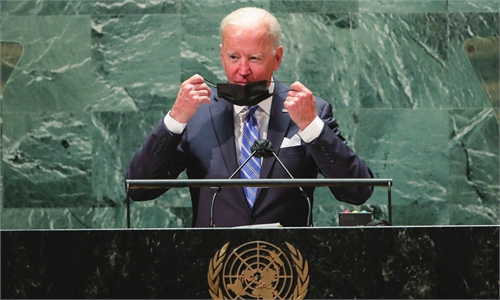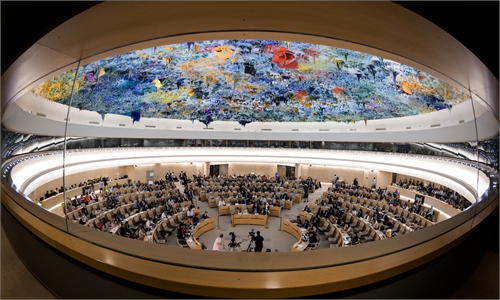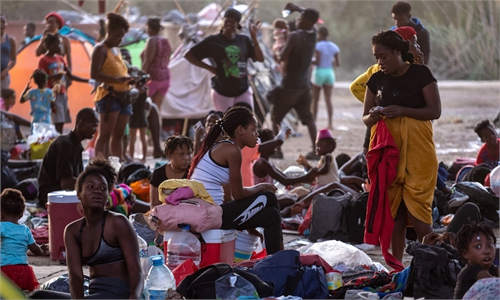China, others reveal negative impact of Western unilateral coercive measures on human rights

Look, Uncle Sam is busy cleaning up its own mess on human rights problems. Does the US still think it's the beacon of human rights? Illustration: GT
At a side meeting of the 48th session of the UN Human Rights Council on Wednesday, permanent missions of 10 countries including China discussed the serious violation of human rights caused by unilateral coercive measures by the US and other Western countries, urging them to abolish such actions immediately.
The UN permanent missions of China, Russia, Venezuela, Iran, Belarus, Cuba, Syria, Zimbabwe, Nicaragua, and Bolivia jointly held the video conference on the topic of the negative impact of unilateral coercive measures on the realization of the rights to develop.
Ambassador Chen Xu, Permanent Representative of China to the UN Office at Geneva and other International Organizations in Switzerland, said that unilateral coercive measures are essentially hegemonic acts and power politics.
The US and other Western countries, regardless of the COVID-19 pandemic, intensified their implementation of unilateral coercive measures, which seriously endangered the basic human rights of the people of the victimized countries, Chen said.
China is also a victim of unilateral coercive measures, as some countries do not hesitate to fabricate and spread lies, using human rights as an excuse to impose unreasonable unilateral coercive measures against Chinese enterprises, entities and individuals. They do this to harm the legitimate rights and interests of Chinese enterprises, violate the human rights of the Chinese people, so they can destabilize China, contain its development, and maintain the monopoly of their own enterprises, Chen said.
International affairs should be discussed and handled by everyone, Chen said, noting that those who threaten, impose sanctions and intimidate with power politics, hegemony and bullying will eventually fall.
Permanent representatives of other participating countries pointed out that unilateral coercive measures seriously violated international law and the basic norms of international relations, and seriously affected the economic and social development of the victimized countries and their people's living standards, and the international community should jointly oppose and resist.
The Permanent Representative of Cuba condemned the embargo imposed by the US on Cuba for more than 60 years. The Permanent Representative of Iran called on the international community to investigate the crimes against humanity committed by countries that imposed sanctions.
Du Han, Special Rapporteur of the Human Rights Council on unilateral coercive measures, said that unilateral coercive measures affect the development of the victimized countries and their people's human rights to survival, development, health, education, employment, environment and others.
UN agencies should pay more attention to the harmfulness of unilateral coercive measures, and the World Health Organization and the International Labor Organization should also pay attention to this issue, Du said.
Zhu Ying, a professor at China's Southwest University of Political Science & Law, said that the US ignored the opposition and condemnation of the UN and other countries, unscrupulously wielded the stick of sanctions, causing serious consequences.
Under the banner of safeguarding "democracy" and "human rights," the US has continuously upgraded its sanctions against China to serve the strategic purpose of containing China comprehensively, Zhu said, noting that China has passed the "Anti-Foreign Sanctions Law" and will defend its national interests in accordance with the law.
Experts from other countries pointed out that illegal unilateral coercive measures violate international law and are immoral, and sanctions imposed by developed countries on developing countries will further widen the North-South gap.
The UN human rights treaty bodies should pay attention to the negative impact of unilateral coercive measures on human rights. And the victimized countries should unite to bring to light the illegality of these measures, and demand that countries that imposed sanctions compensate for the damage they have caused, they said.
Global Times



